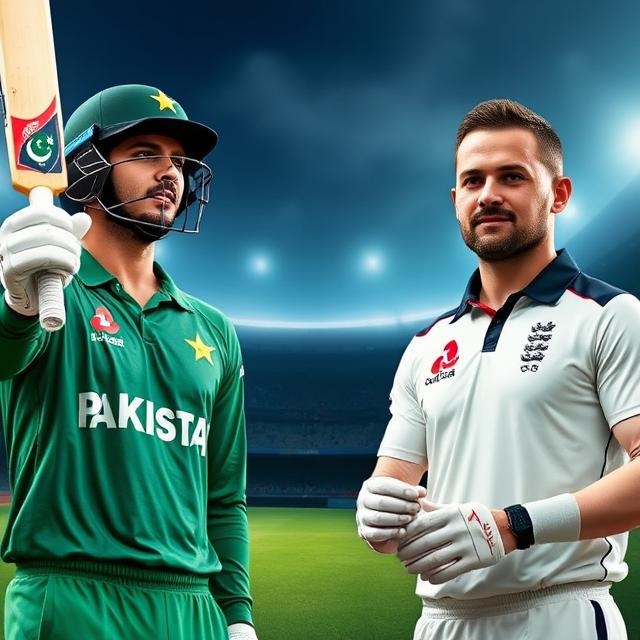Next Coach of Pakistan Cricket Team: A Critical Time for the Green Shirts

Next Coach of Pakistan Cricket Team: A Critical Time for the Green Shirts
Pakistan cricket is at a crossroads. Recent performances have been inconsistent, leaving fans and experts alike questioning the team’s direction. Finding the right coach to steer them back to glory is no longer just a matter of preference; it’s a crucial decision that could determine the team’s future for years to come. This article dives deep into the complexities surrounding the selection process, exploring potential candidates, and analyzing the critical requirements for the next coach.
The current state of Pakistan cricket, though rich with history, faces numerous challenges. From the fluctuating form of key players to evolving international cricketing strategies, the team needs a coach who can adapt and inspire. The need for a visionary leader capable of fostering a winning culture within the dressing room cannot be overstated.
The Imperative for a Strong Coaching Figure
A successful cricket coach in Pakistan isn’t simply someone with a strong cricketing resume. The next coach needs to be a leader who can effectively communicate, inspire, and motivate players. The ability to handle the pressures of international competition and the often-intense Pakistani cricketing environment is paramount. They must be able to decipher the complexities of individual player needs, while also setting the team on a collective path towards success.
Beyond the technical side of the game, the coach must understand the unique cultural nuances within the Pakistan cricket team. This includes managing player egos, understanding the team dynamics, and fostering a positive and supportive atmosphere, crucial elements often overlooked.
Potential Candidates and Their Strengths
Several names are circulating within cricketing circles as potential contenders for the position. Analyzing their past successes and experiences is vital in assessing their suitability for this role.
Candidate A, a highly-experienced coach with a proven track record in successful international campaigns, may bring stability and tactical acumen. However, his approach could clash with the team’s current style. His international experience, particularly his success in handling high-pressure situations, warrants consideration.
Candidate B, a former star player, is known for his leadership qualities and ability to connect with players on a personal level. His deep understanding of Pakistan’s cricket culture is a significant asset. However, his lack of experience as a coach may present challenges.
Candidate C, a rising star in the coaching world, brings a fresh perspective and innovative coaching methods. His proficiency in using modern techniques, particularly in the use of data-driven strategies, might be beneficial for the team. However, his relatively limited experience could be a deterrent.
It is crucial to remember that this is not an exhaustive list, and many other qualified candidates may emerge. The selection process needs to be thorough and impartial, evaluating each candidate based on a well-defined set of criteria tailored to the specific needs of Pakistani cricket.
The Crucial Role of Player Input
Any successful coach-player relationship relies on a foundation of mutual respect and understanding. The importance of getting input from the players themselves cannot be overstated. Understanding their concerns and preferences can help ensure the coach selected resonates with the team’s needs.
Player feedback should be collected through structured surveys and open forums. This process should go beyond simply gathering opinions; it should encourage active listening and a spirit of collaboration.
Beyond the Coaching Position
The selection of the next coach is only one facet of the larger picture. The team must also address crucial areas such as team management, training structures, and player development programs. A comprehensive strategy, including these critical elements, will be essential for long-term success. This requires looking beyond the coach and embracing a comprehensive approach to rebuilding and strengthening Pakistan cricket.
The Importance of Long-Term Vision
The new coach must embrace a long-term vision for Pakistan cricket. Short-term results are important, but a sustainable plan must include developing young talent and implementing a framework for future success. Focusing on youth development is critical for ensuring Pakistan cricket has a strong foundation for the future.
Looking Ahead: The Road to Recovery
The selection of the next coach of the Pakistan cricket team is a crucial moment. It demands careful consideration, meticulous evaluation, and a clear understanding of the current challenges facing the team. It’s about more than just finding a technical expert; it’s about selecting a leader who can inspire the team to greatness, both on and off the field.
Ultimately, the next coach must bring a combination of technical skills, leadership qualities, and a deep understanding of the Pakistani cricketing culture. A thorough assessment process, encompassing input from players, experts, and fans, will be paramount in selecting the right person for the job. The future of Pakistani cricket rests heavily on this critical decision.
Conclusion: A new era for Pakistan cricket beckons. The selection of the next coach will be crucial. The future success of Pakistan cricket is now in the hands of those tasked with making this essential decision. Only time will tell if the chosen individual will prove to be the catalyst the team needs to return to its former glory.
Beyond the immediate future, success for Pakistan cricket depends on:
- Building a strong support system. Coaches, administrators, and supporters all play an important part in ensuring a nurturing and effective environment.
- Investing in infrastructure. Developing state-of-the-art training facilities will help prepare players for international competition.
- Focusing on player development. Recognizing and developing young talent is essential for a long-term cricketing future. This includes addressing issues around player welfare and career support.